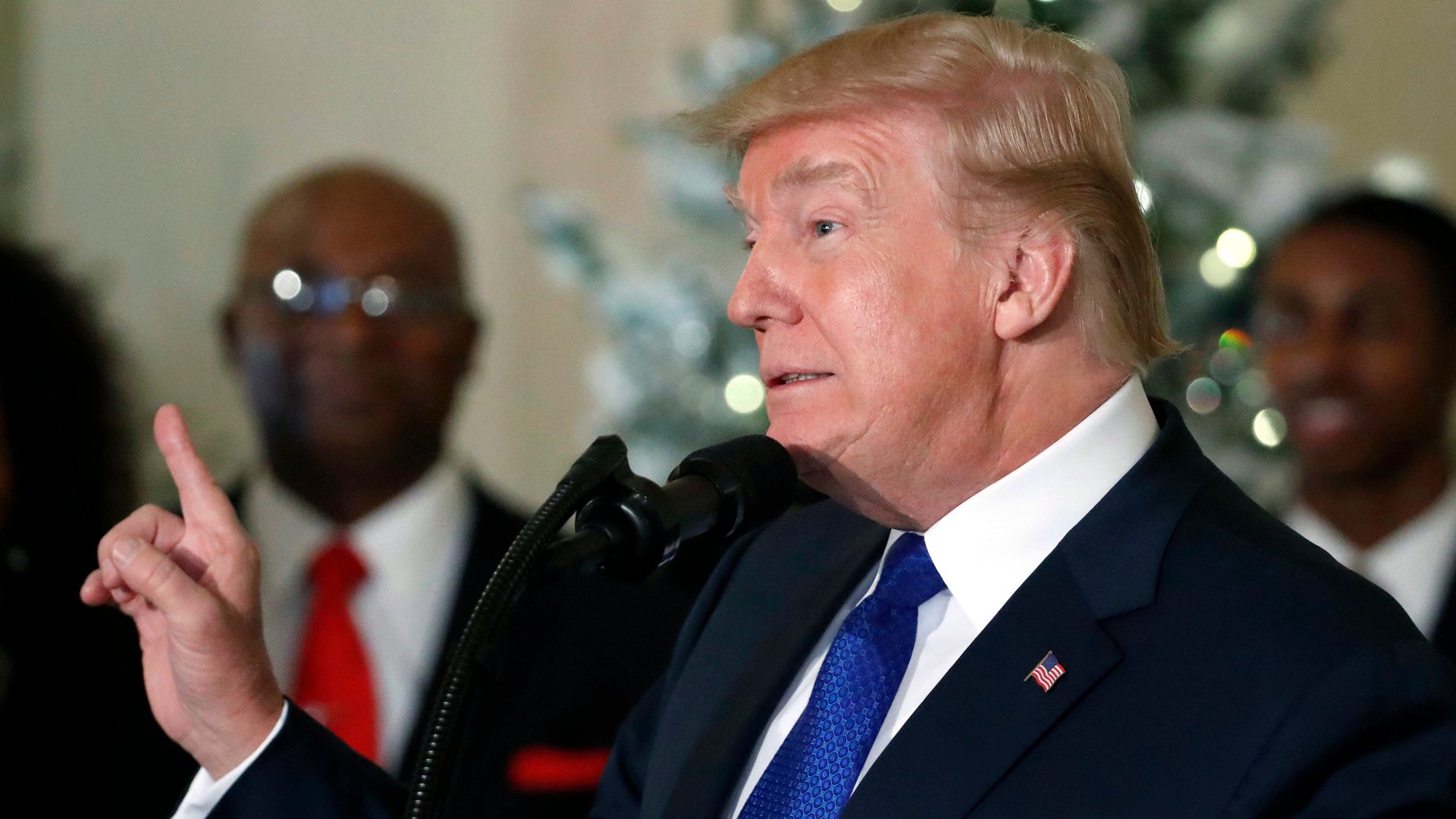The GOP tax bill is a massive victory for globalization
The GOP’s new tax overhaul may appear to be a victory for Donald Trump’s nationalist politics—but it’s not. In reality, the bill endorses globalization and backs business trends that shift jobs from the US to the rest of the world.


The GOP’s new tax overhaul may appear to be a victory for Donald Trump’s nationalist politics—but it’s not. In reality, the bill endorses globalization and backs business trends that shift jobs from the US to the rest of the world.
Almost a year ago, Trump threatened corporations that moved jobs abroad with punitive tax rates. As president, he will sign off on a switch from coercion to seduction, offering the same companies far lower rates in the hopes that will be a more effective inducement for job creation.
Although it’s been marketed as a middle-class tax cut, the largest line item in the new law is a $1.3-trillion reduction in corporate income taxes at a time of record profits. The US corporate tax rate is being cut by 40%, and rather than taxing global earnings, the US will move to a territorial system, with foreign revenue taxed at a bare minimum.
For years, major US corporations have moved production overseas, argued that their foreign sales should be untaxed, and claimed that the top tax rate of 35% in the US was preventing them from investing domestically. These firms kept foreign earnings abroad to avoid paying tax, and some even shifted US profits overseas for the same reason.
This was praised as exemplary management. The logic of globalization was capital flowing to wherever it would be most productively used (or least-taxed). If that hollowed out the US manufacturing industry, well, there would be transition costs. Proposals to simply end deferral and collect the tax, or to switch to a system that taxes companies based on where their sales take place, were defeated.
With the rise of Trump, some briefly thought that the US would turn instead to policies that would restrain multinational corporations in favor of domestic economic priorities. Instead, his party wants to restrain domestic spending in favor of the priorities of corporations.
Trickle down…
Now, multinationals that have deferred taxes on nearly $3 trillion worth of earnings can repatriate them at a special one-time rate of 15.5% or less. Their holdout strategy succeeded. Even a few years ago, a corporate rate of 25% was seen as dramatically low. The new top rate of 21% is more than many CEOs could have imagined. But will their success trickle down to ordinary Americans, as Republicans promise?
Shareholders will be the immediate beneficiaries. They also happen to be the wealthiest Americans, since the top 20% of earners own more than 90% of US equities; many are also foreign investors. Nevertheless, the White House believes that lower corporate rates will convince companies and investors to bring their money to the United States, creating more jobs and opportunity for the working class. This jibes with what many economists expect, all things being equal.
“It should lead to less profit shifting and more investment in the US, even though the shift to territorial taxation pushes somewhat in the other direction,” Alan Auerbach, an economist who specializes in tax policy, told Quartz. “There is a lot of uncertainty about the magnitudes of response, given how large the policy changes are relative to other recent episodes.”
The White House has not seen much uncertainty, claiming that corporate tax cuts will lead to an $4,000 increase in average wages, but this relies on extremely generous assumptions. White House adviser Gary Cohn famously faced crickets when he asked corporate leaders if they would invest their windfall. Most surveys suggest companies will use the money to buy back stock or issue dividends to investors, rather than open new factory or add another shift.
…or trickle out?
No economic forecasts expect the new law to dramatically alter the trend of US growth. Statisticians will be watching to see if the promised gush of new investment in US industry appears, if multinational corporations use their gains in other ways, or simply continue to keep money overseas.
Critics, even those who favor lower corporate rates, fear this bill will increase existing incentives for companies to employ tax havens. Under the new law, companies pay a minimum tax on global income, designed to prevent them from shifting intellectual property (and profits) to low-tax jurisdictions overseas. But the hastily written new rules create a loophole for companies to skirt that minimum tax by investing in factories and other routine operations outside the United States.
“The more a US multinational shifts jobs and operations to industrialized nations with similar tax rates to the US, the more it can get away with shifting more and more profits to tax havens,” former Obama and Clinton economic adviser Gene Sperling wrote of the provisions. That could mean more jobs headed out of the US. Certainly, Ireland isn’t worried.
Even if the loopholes can be fixed, many experts expect the move to empower multinationals to demand new tax concessions in other jurisdictions, driving a global race to the bottom. European finance ministers are already crying foul, and one likely result of the US changes will be new laws in other developed economies to favor global corporations. That, in turn, will have those same chief executives returning to Washington, complaining about how uncompetitive US laws have become. Maybe a tax cut will help?